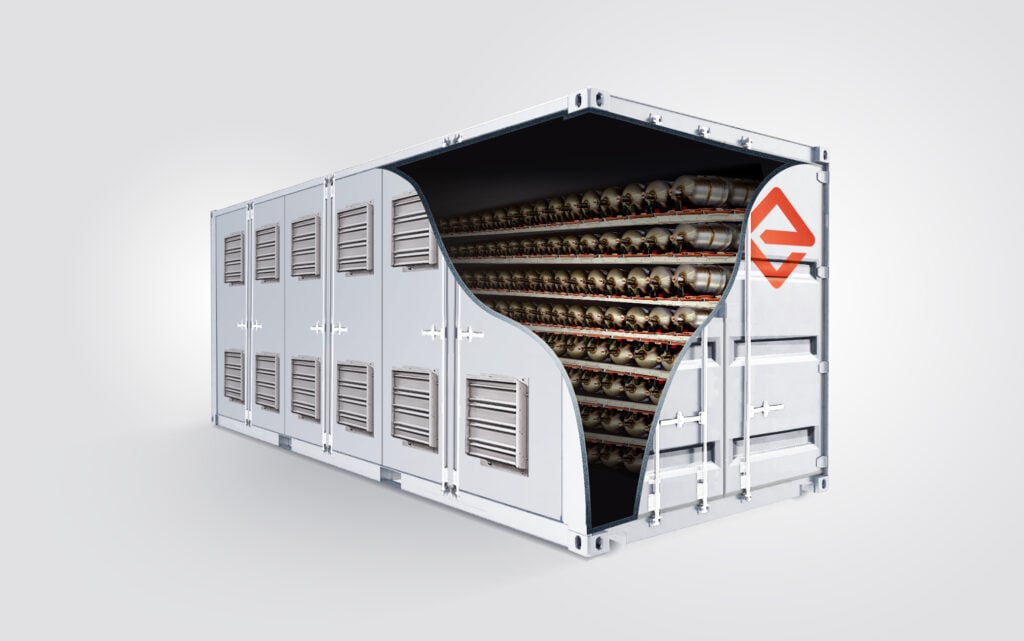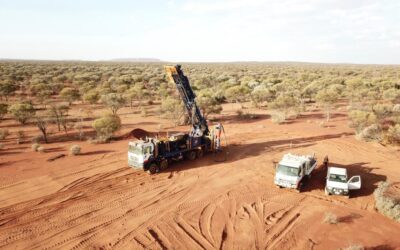
A warranty covering 20,000 cycles has been launched by Enervenue, the US startup commercialising a nickel-hydrogen battery based on technology used for outer space applications.
The company, headed up by former solar PV and flow battery industry executive Jorg Heinemann, has developed a version of the space age tech, as seen on the Hubble Space Telescope and International Space Station, that aims to be lower cost and made with more abundant materials than lithium-ion batteries.
Each Enervenue battery is comprised of ‘Vessels’, each with 1.2kWh capacity and filled with multiple electrode stacks. These can be stacked, whether in series or parallel, and configured for anything from residential to utility-scale applications. Although it uses nickel, CEO Heinemann told this site previously that it uses a small enough amount per unit that sourcing sufficient nickel is unlikely to be a challenge.
As well as promising low-cost energy storage, the battery systems can provide between 2-12 hours storage duration, are suitable for harsh climates and are fire safe, the company has said. It also isn’t subject to degradation or capacity fade over time and use in the way that lithium batteries are subject to.
Try Premium for just $1
- Full premium access for the first month at only $1
- Converts to an annual rate after 30 days unless cancelled
- Cancel anytime during the trial period
Premium Benefits
- Expert industry analysis and interviews
- Digital access to PV Tech Power journal
- Exclusive event discounts
Or get the full Premium subscription right away
Or continue reading this article for free
Called the Capacity Assurance, Enervenue’s new warranty provides a 20-year, 20,000-cycle extension at a guaranteed 88% capacity, which the company said is in line with the lifetime expectations of energy storage developers, especially in the crucial early payback phase of projects.
The actual expected lifetime of an Enervenue battery system is about 30 years and 30,000 cycles, over which very little maintenance is required, even in very high or low ambient temperatures and the systems do not require HVAC.
Expected lifecycles of the different types of lithium-ion battery used in battery energy storage systems (BESS) vary but is roughly in the range of 6,000 full cycles. Typical warranties for lithium-ion systems are often complex and include provisions for augmentation as degraded cells need to be replaced over time.
Perhaps the closest recent market development to the warranty launch is the insurance cover offered by specialist reinsurer Munich RE, which made US iron flow battery company ESS Inc’s technology its first customer.
That was described as the world’s first long-term insurance plan for battery performance when it launched in 2019, offering a 10-year warranty backstop.
Meanwhile, Enervenue appears to have made big strides in commercialisation since the company emerged from stealth mode in 2020.
In July, CEO Heinemann told this site the company was ready to go into volume production and had by that stage already booked 5GWh of customer orders. In September that was followed up with a three-year, 250MWh supply deal with developer Green Energy Renewable Solutions.
Read ‘We think we can beat lithium-ion’: Enervenue bids for battery storage supremacy, our interview with EnerVenue CEO Jorg Heinemann from July, here.





